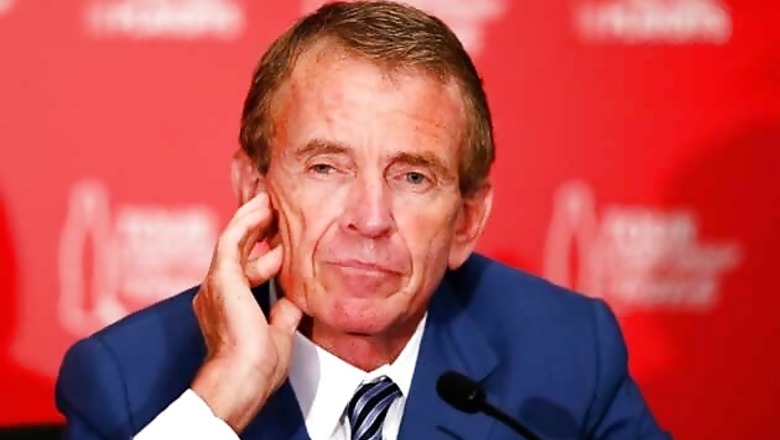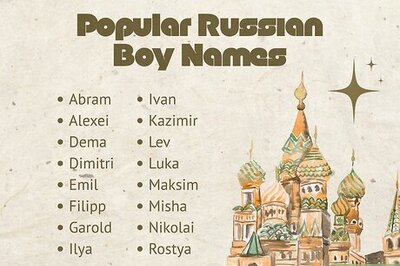
views
US Ryder Cup failure at Gleneagles this year had little to do with player burnout from the PGA Tour's burgeoning schedule and was simply a case of Europe dominating the foursomes and making more birdies, Tour chief Tim Finchem said on Wednesday.
Europe have won eight of the last 10 instalments of the biennial team competition, prompting much soul searching in the United States and the establishment of a task force to come up with answers as to why they have failed to deliver.
A range of theories have been suggested, including a lack of team harmony, tactical failings and players playing too much competitive golf ahead of the tournament, but Finchem said it was better to steer clear of knee-jerk reactions.
"Sometimes in these competitions people read too much into the result," the US PGA Tour chief told a small group of journalists in Incheon.
"In the case of the Ryder Cup in Scotland... the Europeans made more birdies than the Americans... and they won the foursomes 7-1. You can't win the Cup if you're going to drop the foursomes section 7-1."
Tom Watson, who captained the US team in September, had said their struggles in the alternate shot format had been the difference. Before the event he had also expressed concerns his players were struggling from tournament fatigue.
Finchem said few of the players would agree with that assessment and that the schedule did not appear to have hampered the United States at the Presidents Cup, which pits the team against a squad representing the rest of the world minus Europe.
"We had the same amount of golf before the last three Presidents Cups and the United States won all of them," he added. "I think if you talk to the members of the team they would not point to that as having much significance.
"A player under our system determines where he plays. They're not employees, they're independent contractors. We just create opportunities."
The sport's most lucrative circuit started the 2014-15 season in early October and will host 47 tournaments, up from 45 last season.
Next year's Presidents Cup will take place after the conclusion of the PGA Tour season and will be held for the first time in South Korea at the Jack Nicklaus Golf Club in Incheon.
'VERY NICE FIT'
In contrast to their recent Ryder struggles, the United States have dominated the Presidents Cup since its inception in 1994, winning eight versions and drawing once, leading to some criticism that the event is too one-sided.
Finchem, however, said the United States had enjoyed similar dominance in the early years of the Ryder Cup and the situation could easily swing the way of the Internationals.
"It's way too early to determine that the uneven situation is long term when right now most of the growth of the game is happening outside of the United States," he added.
"So one could also argue it's only a matter of time before a generation of elite players from that growth even things out."
The same situation could also play out in the Ryder Cup, he added.
"Who knows, 30 years from now we may be looking back and saying: 'Remember the time when the United States started winning all those Ryder Cups?'
"That's what makes it so interesting."
The Presidents Cup will be played in Asia for the first time next year from Oct. 8-11 and Finchem said the decision to choose South Korea reflected the country's standing in the golf world.
The participation of KJ Choi, YE Yang and Kim Kyung-tae in previous Cups showed South Korea was producing elite golfing talent, while the country's ability to stage the world's biggest sporting events made it a natural choice of Presidents Cup host.
South Korea has won praise for its successful hosting of the 1988 Seoul Olympics, 2002 soccer World Cup and 2011 World Athletics Championships, and the Alpine town of Pyeongchang will host the country's first Winter Games in 2018.
"Korea has already established a history of staging and conducting major sporting events at the Olympic level," he added. "And with golf going into the Olympics, and with the Winter Games here in 2018, we think this is a very nice fit."


















Comments
0 comment